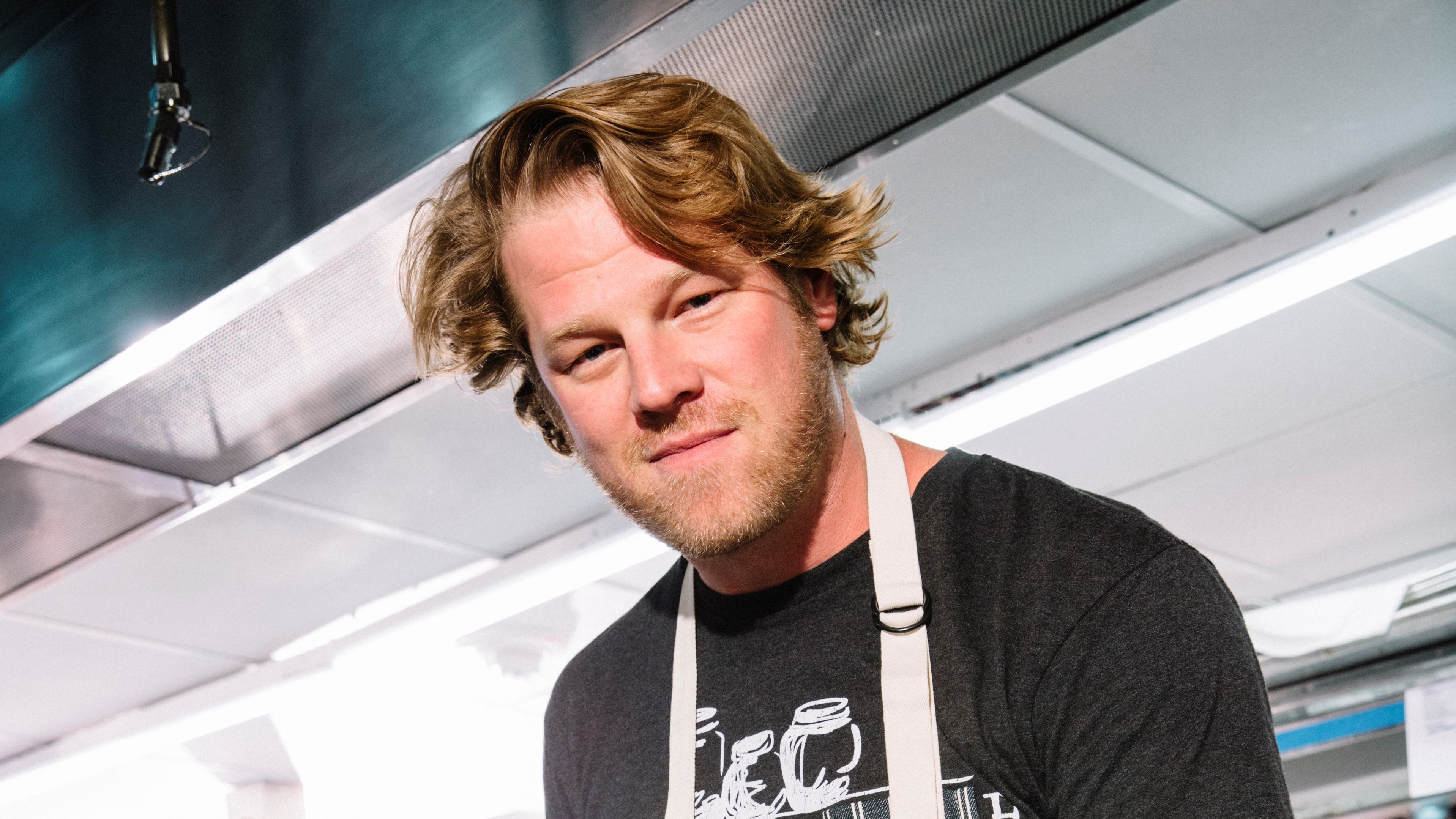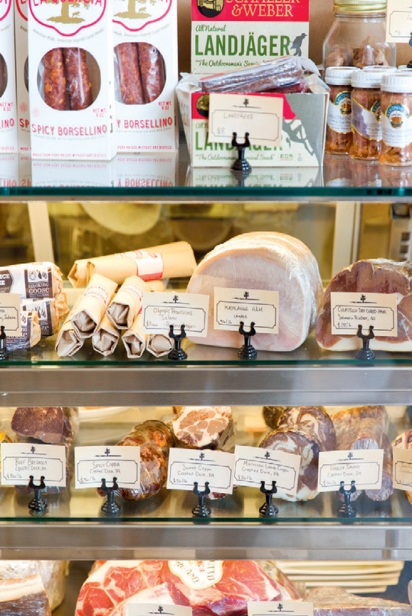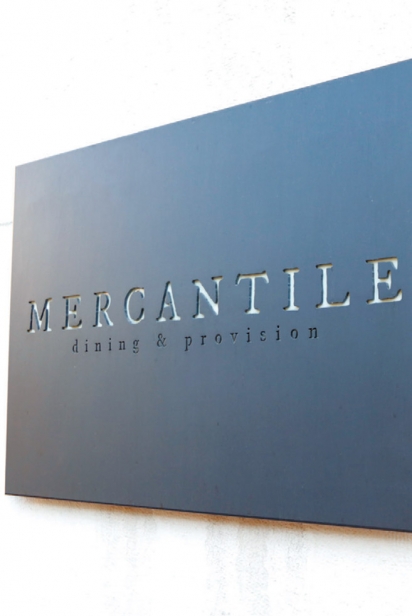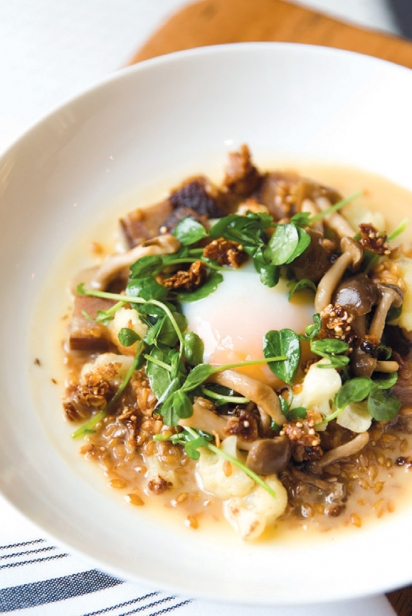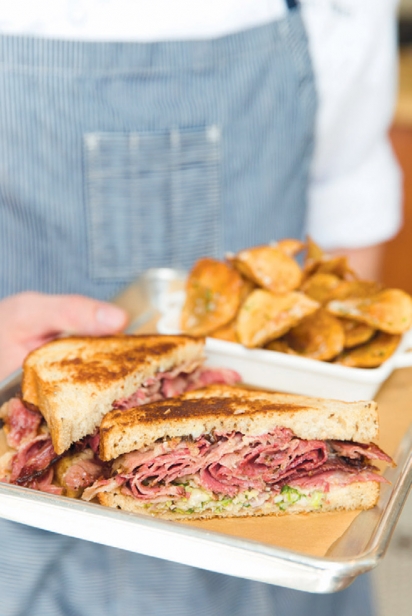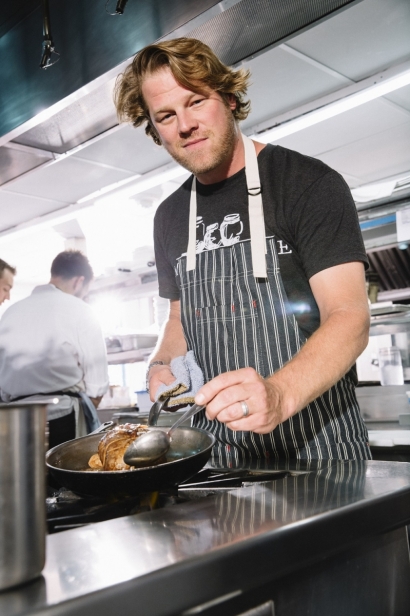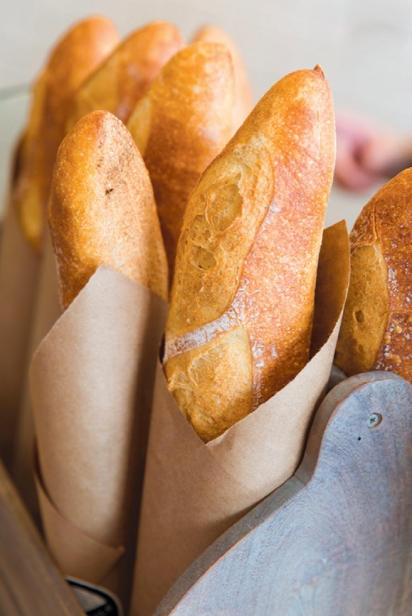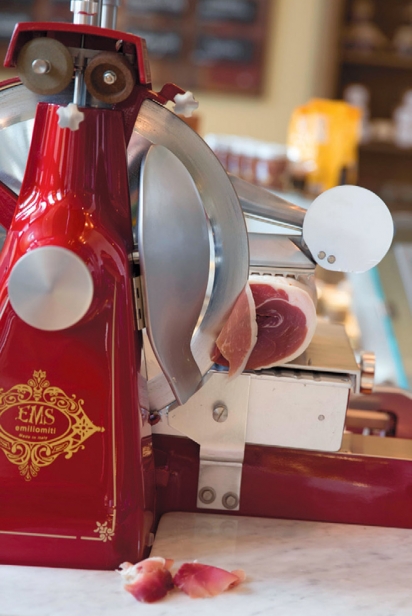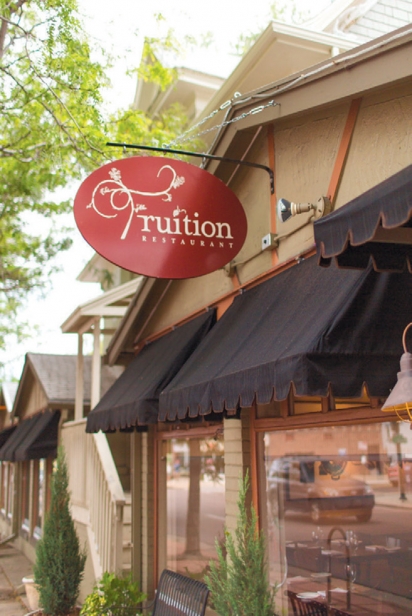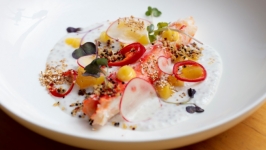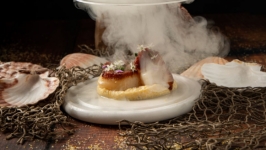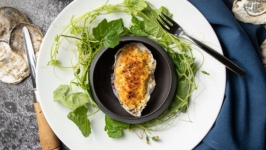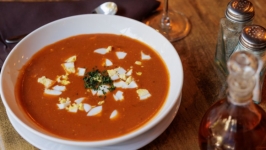Finding Soul and Success in the Kitchen: The Interview with Chef Alex Seidel
Chefs are defined by their effect. They can make memorable food. Their teaching can be legendary. Their ability to cultivate - and create - trends is storied and meaningful. Their impact, though, is the sum of all of those parts. Chef Alex Seidel is a whirling storm of all those pieces that makes for a bright spot on Denver’s already glowing culinary landscape. And for a short time, Delaware gets to borrow him as honorary chair of the 2019 Meals on Wheels Delaware Celebrity Chefs' Brunch.
Talking with Chef Seidel is like taking a course in culinary entrepreneurship, marketing, altruism, and flavor. At the same time. The 2018 James Beard Award winner opens up about his approach, ingredients, being the farmer, and why the drive for Meals on Wheels.
Edison lights, re-claimed wood, Brussels sprouts, hummus, and beets. There is a very defined movement in where food is going right now
How do you keep it interesting and on-trend without it being homogenized with what everybody else is doing?
AS: I find inspiration in the object, like vegetables. Ever since I can remember being a young cook at Fruition, food has evolved. I never really followed trends too much. Follow what is in your heart. Look at an ingredient and how you can manipulate it and do not get too crazy. Always be able to identify the ingredient. Being true to yourself has always been my style. Simplicity. What makes a great dish? Finding soul. Maybe not one you see everywhere.
Kitchens breed more than cooks and dining experiences
Restaurants are said to build ladders to elevate a career from the ground up. So, so, so many young and energized chef-entrepreneurs out there. A bullet list for the motivated?
AS: Always push what has been achieved. Pay attention to the smallest details: When I walk into work every day, I wear the [owner] lenses. Manage the pressure of the owning a business. I am very fortunate to grow with a lot of good people. Being successful means you will never do it all on your own. Surround yourself with good people, people you can be inspired by.
The relationship between farm/market/restaurant
A lot of people talk about working with farms and farmers; you actually own the farm and do the farming. How do you balance the inevitable expense of doing local-only product?
AS: First off, never make any claim. Never say ‘All Local.’ It is really hard to grow limes in Colorado! Focus on the ingredient; use the best possible. [Coming from California] I had local abalone, Gilroy garlic, and Salinas is the salad bowl of the country. Now you come to Colorado and it is high mountain desert. Not a lot of ingredients locally. In 2009, I had the opportunity to purchase a farm, [to] create something to benefit the restaurant. When we opened in 2007, there was one pig farmer nearby. I started raising pigs in 2010, now you can find 30 pig farmers. We want to support local systems, but they have to exist and they have to be efficient. All of our potatoes are sourced from one grower for all of our restaurants. It’s a relationship we have had for six years, but we couldn’t make work until now.
Chefs’ support of organizations in need is part of our luster
There are benefits out west that can keep you closer to home. Why make the pilgrimage to Delaware?
AS: It starts with Meals on Wheels and my great grandmother. When I was a teenager, I remember when Meals on Wheels was part of the conversation when she couldn’t cook for herself. So about eight or nine years ago, I came to Delaware just based on that. I continue to come because of the people involved. I have never felt so appreciated for what we can bring to help raise money. When chefs get asked five times a day to do an event, it can be really challenging for those that you have to say no to. When you develop a relationship, it is a special place to go back to.
You have been part of the Celebrity Chefs’ Brunch in the past. What do you look forward to?
AS: I look forward to all the people. I meet new people, I see some of the same. It is a really great event to showcase food and an opportunity to raise money. It just feels like a genuine event. I appreciate it being a brunch; so many of the events are so similar. With a brunch you get to see people at their brightest of the day. What a great atmosphere!
When James calls
You have a portfolio full of years of regional accolades and awards. There were semi-finalist nods from the James Beard Foundation. And then in May, Best Chef Southwest. What did that do to you?
AS: Certainly a huge honor, a credit to a lot of work by a lot of people. To receive an award like that means we have made a lot of people happy. It has really brought a bit of confidence in what we are doing. Opportunity to grow, evolve, and develop; as a chef, as a restauranteur, as a community.
What’s next?
Four brands rolling, a farm producing for your operations, and bright light from the award. Where are you going?
AS: Chook [Seidel’s casual chicken/ rotisserie locale] is completely different. It is built on giving back to the community and creating systems that support the community. Unlike Fruition and Mercantile, not everybody has the opportunity to eat there as special occasion places. Chook is about feeding the family. We give 1% of sales back to the community, in the form of supporting a charitable organization.
Booyah Stew on the menu at Chook is a take-home kit for using leftovers
Seems like a testament to nose-to-tail cooking. How do you balance less waste with the demand for all the ‘good’ parts and uber-premium products?
AS: Zero-waste inspired that dish. When I was younger we used to get a rotisserie chicken. We always had a chicken leftover the next day. I’m not a big leftover person, but you need to eat. For me, it has always been about respecting the whole ingredients, making something out of them. It is the way I grew up. It can be hard to teach. Booyah is away to demonstrate that. We provide instructions. It’s healthy, a “one meal wonder.”
Fruition. Mercantile. Füdmill... Chook?
Instead of getting higher-end, your bend seems to lean casual. We have heard that fine dining is dead - at least for now. Is your approach echoing that drive?
AS: No, I wouldn’t say so. Fruition and Mercantile aren’t fine dining. I certainly create food at those two locations that have more steps, where five people create one dish. Chook has the same quality, but more in the process is different. It’s about being comfortable to eat, getting consistently good food, [and] great service. We are only as good as what we can offer at a high quality.
What’s happening in 2019 and beyond?
AS: I have been asked that and I think it is chefs trying to connect more; more collaborations with producers, working on ways to make better food systems, and more efficiencies. We still have a long a way to go. James Beard Foundation is doing a lot to educate chefs on transparency in the ordering systems, [and] how chefs purchase. We are starting to move in the right direction, we need more chefs doing that. More ‘no waste’, more solid producers.
You eat out. What stirs your soul?
AS: We really don’t get to eat out much. But there are so many great restaurants. My wife has changed the way she eats, so the whole family has changed. We eat a lot of sushi, clean flavors, Asian flavor. But I like steak once in a while.
Follow Chef Seidel
instagram.com/bigaseidel/ and facebook.com/alex.seidel.73
Learn more at
fruitionfarmscreamery.com
fruitionrestaurant.com
mercantiledenver.com
chookchicken.com
fudmill.com


